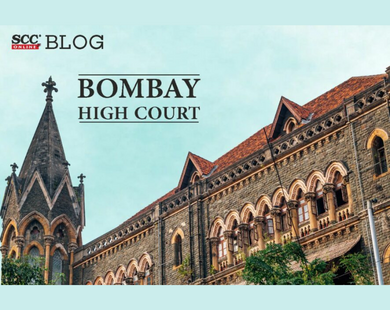Bombay High Court: In a Commercial Arbitration Petition challenging the consolidation of claims arising out of nine separate contracts by the arbitrator, Manish Pitale, J. dismissed the petition while refusing to interfere with the impugned arbitration award. The Court considered the question of whether an arbitration award is liable to be set aside because disputes arising out of nine contracts were consolidated and a single statement of claim was entertained and allowed.
The Petitioner entered 9 contracts with the respondent between 24-1-2011 and 29-3-2011 for purchasing cotton bales to be supplied from three branches of respondent, i.e., corporation at Sirsa, Sriganganagar and Bhilwara. The respondent claimed that the petitioner lifted 1300 out of 26449 cotton bales and failure to lift the rest of 25149 cotton bales and make corresponding payments resulted in breach of contract. A retired judge of Bombay High Court was appointed as the sole arbitrator by the Director of the respondent-corporation.
The arbitrator framed 11 issues including consolidation of claims. Arbitration award was passed on 24-07-2017 in favour of respondent corporation directing the petitioner to pay a certain amount in favour of respondent. The present matter was filed against the arbitration award on various grounds, primarily focusing on consolidation of separate contracts with distinct disputes.
The Court began with examining the extent of jurisdiction available while exercising its power under Section 34 of the Arbitration and Conciliation Act, 1996, i.e., grounds on which arbitral award can be set aside.
The Court relied on Ssangyong Engg. & Construction Co. Ltd. v. NHAI, (2019) 15 SCC 131 wherein, the Court specifically considered the position of law after Arbitration and Conciliation (Amendment) Act, 2015, restricted re-appreciation of evidence and findings on merits, and held that arbitration awards cannot be lightly interfered with unless specific grounds are satisfied.
The Court considered the case of Duro Felguera, S.A. v. Gangavaram Port Ltd., (2017) 9 SCC 729 whose specific facts led the Court to hold that a composite reference before a single arbitral tribunal could not have been undertaken. The Court concluded that the facts of this case do not coincide with the present matter. It was pointed out by the Court that in the present matter, 9 contracts were executed between the same parties with identical nature of dispute and arbitration clauses, wherein the difference in actual figures of sale and purchase is the only difference.
The Court relied on P.R. Shah, Shares & Stock Brokers (P) Ltd. v. B.H.H. Securities (P) Ltd., (2012) 1 SCC 594 for multiplicity of proceedings. The Court opined that “when specific claims pertaining to each of the nine contracts were placed distinctly in the statement of claim filed on behalf of the respondent, and the fact that the petitioner also chose to file a consolidated counter claim pertaining to all the 9 contracts, it cannot be said that the learned arbitrator committed a jurisdictional error in proceeding with the arbitration.”
While discussing the question of prejudice, the Court noted that the petitioner did not forcefully argue the prejudice caused due to the manner of arbitral proceedings but emphasized on arbitrator conducting consolidated arbitral proceedings for 9 contracts in the absence of petitioner’s consent, while counter claims were also raised by the petitioner in a consolidated manner.
The Court found that the principal contention raised by the petitioner is devoid of substance. Regarding other contentions that respondent had no right of unilaterally extending the contract and carry forward delivery period, and that the arbitrator erred in relying upon unproved letters, the Court said that “these do not amount to any substantial grounds for this Court to exercise limited jurisdiction available under Section 34 to interfere with the impugned award.”
Relying on Ssangyong Engg. & Construction Co. Ltd. v. NHAI, (2019) 15 SCC 131 regarding the nature and scope of jurisdiction post amendment Act of 2015, the Court concluded that sufficient grounds were not made out for interference with impugned award, neither being opposed to India’s public policy, nor being patently illegal.
For other grounds challenging appreciation of evidence and merits of the award, the Court refused to entertain the same acknowledging them within the domain of arbitrator and dismissed the present petition.
[BST Textile Mills Pvt. Ltd. v. The Cotton Corporation of India Ltd., 2023 SCC OnLine Bom 318, decided on 9-02-2023]
Judgment by: Justice Manish Pitale
Advocates who appeared in this case :
For Petitioner: Senior Counsel Gaurav Joshi, Advocate Kazan Shroff, Advocate Amit Jajoo, Advocate Darpan Bhatia, Advocate Siddhant Trivedi;
For Respondent: Advocate Simil Purohit, Advocate Vikrant Shetty, Advocate Tanjul Sharma.


